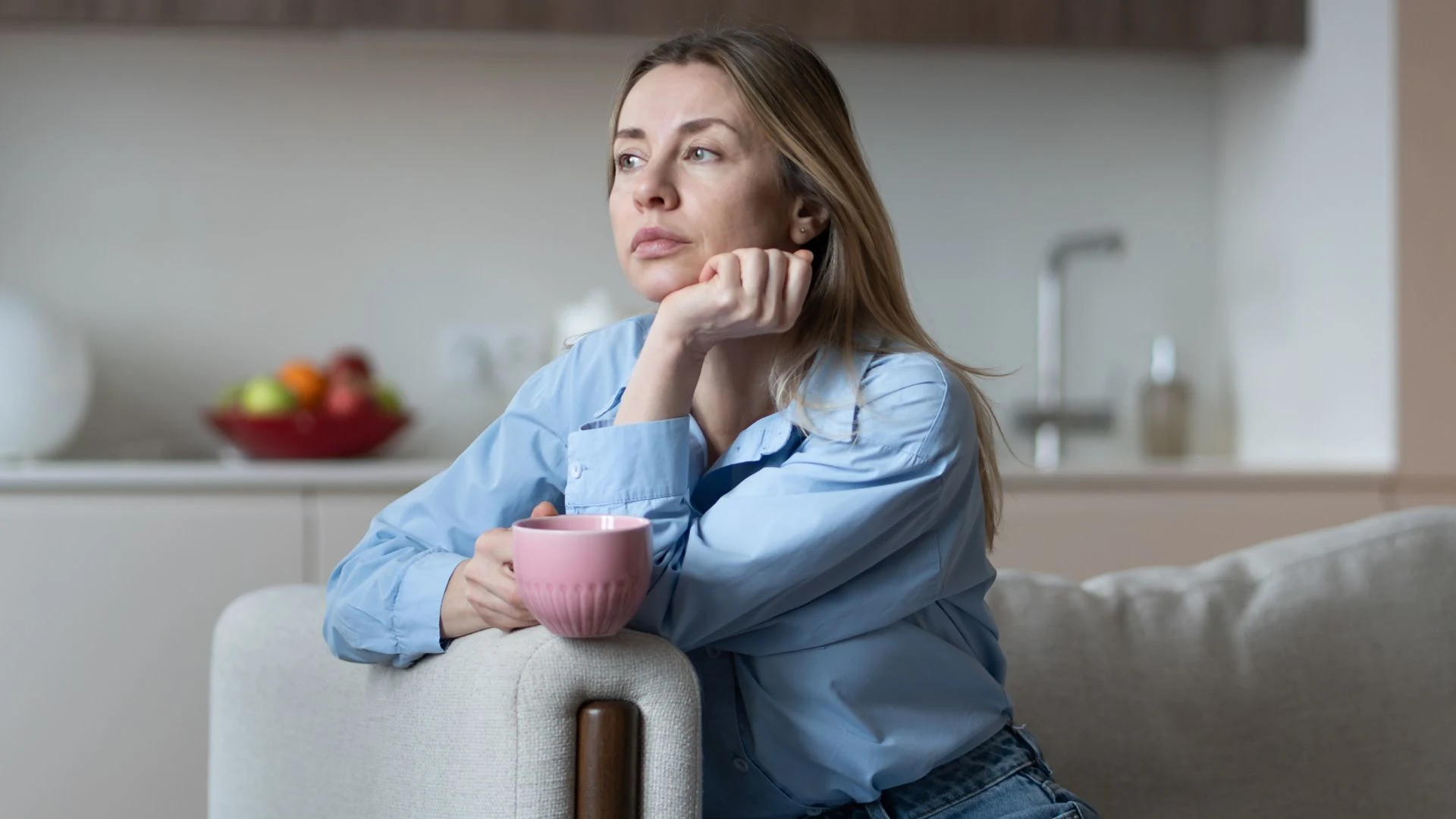By Nuria Safont
Copyright hellomagazine

While the physical symptoms of menopause, from hot flushes to sleep troubles, are thankfully talked about more often these days, there are silent emotional effects that can be equally challenging – and sometimes even more so. Many women in perimenopause or menopause suddenly feel a lack of interest in activities that were once guaranteed to spark joy, and the things they loved to do, watch or experience no longer bring them the same happiness. There’s a name for this feeling: anhedonia.
If you’re suffering from anhedonia, understanding what it is, how it manifests itself during menopause and what can be done to overcome it is crucial. So with the help of three medical experts, we’re going to tackle some of the most frequently asked questions about anhedonia, and offer five solid strategies to help you cope.
What is anhedonia and how is it related to menopause?
Dr Carlos Millán, a specialist in gynaecology and hormonal disorders, explains that while anhedonia during menopause shares some similarities with depression, it’s actually different. “Depression is accompanied by feelings of sadness and hopelessness,” he notes, “but in [menopause-related] anhedonia you don’t necessarily feel despair – this issue is that you simply aren’t able to feel joy.”
‘Why am I feeling this way?’: The link between hormones and anhedonia
For some women, simple mood-boosting activities like spending time with family, indulging in favourite hobbies or enjoying a good meal noticeably lose their sparkle during menopause and perimenopause. And the main reason for this shocking change has to do with our hormones. Essentially, a decline in oestrogen directly impacts neurotransmitters such as serotonin and dopamine that control pleasure and our moods.
So why do some women go through this stage without problems, while others dramatically lose their spark? Every woman is unique, and it’s only for some that the severe drop in oestrogen and progesterone impacts how the brain processes pleasure. For these women, “it’s as if the brain runs out of ‘fuel’ to generate feelings of well-being,” says gynaecologist and menopause treatment pioneer Dr Santiago Palacios.
More than just hormones: other contributing factors
Dr Millán points out that the origins of anhedonia are quite complex, influenced not only by hormones but also by psychological and social factors. A lack of family support, stress and even the loneliness many women feel at this stage of life can make it worse. Menopause also often coincides with the time of life when there are lots of other changes happening, too.
Children reaching adolescence or leaving the nest, divorce, caring for or grieving ageing parents, job changes or retirement… all can help generate a cocktail of emotions that help quash that sense of joy you once had in your normal activities. As Dr Millán highlights: “Stress lowers dopamine levels, which can lead to symptoms like anhedonia.”
There are some things you can control, though, because behavioural factors, too, have an impact. Excessive screen time, a lack of sleep or poor diet and gut health during menopause can worsen anhedonia.
What are the signs of anhedonia in menopause?
Another specialist, Dr Ernesto Bas, points out that a lack of interest in hobbies or activities that were previously pleasurable is one of the first signs we might notice. “Sometimes, it’s so subtle that women don’t realise what’s happening at first,” he comments. For example, maybe you have always loved reading, cooking, watching films or meeting up with friends, but now start to see it all as a chore. You may also notice other symptoms including:
Mood swings
Nervousness or increased anxiety
Difficulty concentrating
So, is it necessary to treat these symptoms? The experts say yes. Although it might be tempting to write them off as being caused by tiredness or boredom, it’s important to see a doctor if they’re affecting your daily life. Anhedonia might not seem serious at first, but it can profoundly affect your health if it’s not addressed in time.
How does anhedonia affect a woman’s quality of life?
Anhedonia can affect all aspects of your life – whether personal, social or professional – and may impact your self-esteem or lead to a sense of feeling disconnected from others. You might even start to feel guilty for not having sufficient willpower to just cheer yourself up, which can create a cycle of frustration. Without adequate support, anhedonia can get worse; perimenopausal and menopausal women may start to isolate themselves emotionally, which only intensifies the problem and can lead to more serious mental health struggles.
Taking back your joy: 5 strategies to help you cope
So, what can be done to overcome anhedonia? While anhedonia can seem difficult to manage, there are some expert-approved steps you can take to help regain your emotional well-being.
Seek psychological support. “Talking to a professional or joining a support group can be incredibly beneficial,” suggests Dr Palacios. Sharing experiences with other women going through the same thing is incredibly powerful and can be a game-changer. Feeling understood and supported can significantly reduce the emotional weight of anhedonia.
Talk to your doctor about Hormone Replacement Therapy (HRT). Oestrogen and testosterone therapies can have a dramatic effect on improving the physical and emotional symptoms of menopause, including anhedonia. However, it’s important to consult with your doctor to assess if this treatment is suitable for you.
Get moving. “Exercise during menopause is one of the best therapies for anhedonia,” comments Dr. Millán. When you exercise, your body releases endorphins, known as “happiness hormones,” which improve your mood. Whether it’s walking, swimming, or practising yoga, moving your body can be a powerful tool to combat anhedonia.
Eat right. A balanced diet not only helps improve your physical health but also your emotional well-being. Focus on foods rich in nutrients like omega-3, which are fundamental for the brain and the regulation of neurotransmitters. “Reducing your intake of processed foods, alcohol, sugars and caffeine can make a big difference in how you feel,” says Dr. Millán.
Explore menopause therapies for body and mind. Therapies such as mindfulness, acupuncture, and phytotherapy can be useful for reducing stress and improving sleep quality. These techniques can help you reconnect with yourself and disconnect from the world.
About the experts consulted for this article:
A specialist in obstetrics and gynaecology, Dr Santiago Palacios is the director of Palacios Clinic in Madrid, and in 1989 founded the first-ever Menopause Unit in Spain at the Jiménez Díaz Foundation University Hospital.
Dr Ernesto Bas is a gynaecologist at Vithas Valencia Consuelo Hospital.
Dr Carlos Millán specialises in gynaecology and obstetrics at Vithas International Hospital, and is an expert in hormonal disorders.



